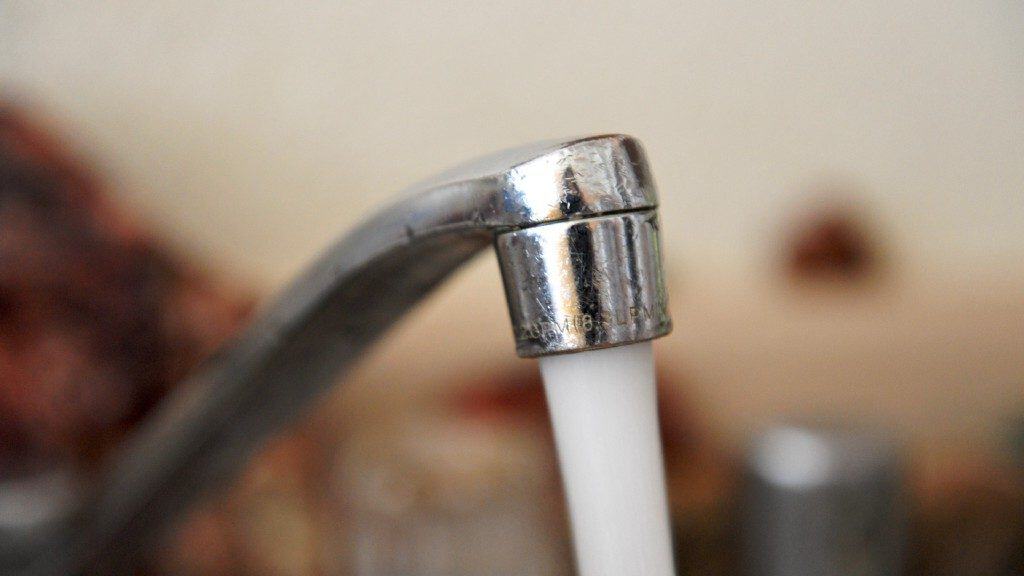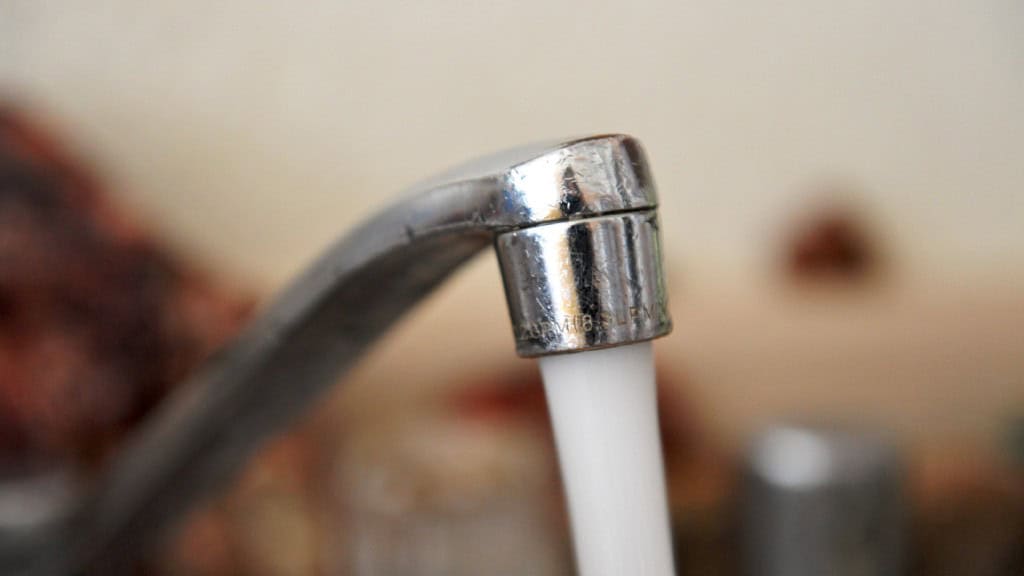
Once again, water issues made headlines this past year.

From increased water treatment discussions, new township officials and a new superintendent, along with various construction projects, the Moorestown community witnessed a lot of change over the course of 2016. As the community moves toward a new year, here’s a recap of some of the events that made headlines in The Sun throughout the year.
Water worries
In March 2013, While participating in the US EPA’s UCMR3 program to identify the prevalence of unregulated contaminants, Moorestown discovered the existence of 1,2,3 Trichloropropane (TCP) in the wells at the North Church Street WTP. Then, in July 2014, the public became aware of this due to a line item on the annual water report. One resident raised concern about the presence of TCP at a council meeting in September 2014, and a public discussion arose. As a result, the Department of Environmental Protection advised the township to shut down its wells, and the township complied in October 2014. After these wells closed, Moorestown began developing treatment options and made up for the loss of the North Church Street WTP by purchasing more water from New Jersey American Water.
Next, in 2015, the township entered into a Memorandum of Agreement that outlined steps to be taken to achieve compliance with the DEP and to address the water department infrastructure decay and the contaminants identified.
In June 2015, then-Mayor Victoria Napolitano and Deputy Mayor Phil Garwood chose to turn a well back on, asking the DEP to rescind their recommendation to keep the well closed, to which the DEP declined.
In February of this year, the contaminated well was again closed due to public outcry, largely stemming from the Moorestown Water Group. Additionally, in the interim of TCP being discovered, Trichloroethylene and gross alpha and combined radium were also found.
Moorestown decided to move forward with what township manager Scott Carew described as an immediate interim treatment solution to take out the TCP and Trichloroethylene (TCE) found in the township’s drinking water through a single treatment process.
At a special meeting held on Thursday, Feb. 10 to discuss Moorestown’s water system, council gave the go-ahead to township utilities engineer L. Russell Trice to prepare specifications and bid documents for temporary equipment that would eliminate the TCP and TCE found in Wells 7 and 9 at the North Church Street Water Treatment Plant.
Later that month, Utilities Superintendent Bill Butler sent a Tier 2 notification to Moorestown residents at the direction of the NJ DEP to inform them of a positive result for total coliform that occurred a year earlier (February 15). When the positive result occurred a year earlier, Moorestown completed an assessment of the entire system and determined that the positive result was caused by a faulty sample. There have been no total coliform results since. Because the language provided by the NJ DEP for the notification that included the idea of boiling drinking water, the notification created unnecessary cause for concern leading the Deputy Commissioner of the DEP and Bill Butler both providing letters clarifying the situation.
At the March 7 Town Council meeting, a resolution was approved that would award a contract to Calgon Carbon Corporation for granular activated carbon filters for $376,400, to be used at the North Church Street Water Treatment Plants to filter out the Trichloropropane (TCP 1,2,3) and Trichloroethylene (TCE) found in Wells 7 and 9, as an interim solution.
Moorestown Township then began steps to install interim treatment for radiological chemicals, although no violations had occurred with these contaminants. Township Manager Scott Carew and Utilities Engineer L. Russell Trice spoke on April 25 about the possibilities of adding a filtration system for the radionuclides to town council. The two wanted to get council’s thoughts on if they should move forward on looking into getting the filtration system. Council gave its blessing to Trice to move forward. This system is being installed and will work in conjunction with the Calgon filters that are removing the TCP and TCE.
In July, the township entered an Administrative Consent Order with the DEP, after failing to meet obligations expressed in the previous MOA. The ACO provided a narrative by the DEP on the history of Moorestown’s current water issues as well as direction moving forward.
By October, council remained without a permanent cost-effective solution, and currently relies on a temporary filtration system and water from New Jersey American Water.
Aside from concerns about TCP and TCE, on Wednesday, Feb. 24, a letter was sent notifying residents about a maximum contaminant level violation for total coliform stemming from Feb. 11, 2015 testing. Coliforms are bacteria naturally present in the environment and used as an indicator that other potentially harmful bacteria may be present. The letter, which included a recommendation to boil water and detailed those who were at increased risk, caused alarm and confusion among residents.
A letter from utilities superintendent Bill Butler and Township Manager Scott Carew was then sent on Friday, March 4, clarifying mistakes in the Feb. 24 letter, specifically in regard to how the letter came about a year after the actual MCL violation.
In August, the Moorestown Water Group, an informal group created by concerned citizens to keep residents informed about the town’s water issues, began a “White Ribbon Campaign” so members of the group could pass out ribbons to be tied to mailboxes or trees to show support for finding a solution to the town’s water problem.
Since, group leader Kati Angelini also sought the assistance of Erin Brockovich, an activist who was played by Julia Roberts in a 2000 film about her fight against a company that contaminated water. Hoping to help uncover the facts and ensure community safety, Brockovich elicited the help of her water expert, Robert Bowcock, in her investigation. Bowcock was to conduct an investigation and report his findings back to Brockovich for analysis.
Bowcock has since reported to the group that their investigation is complete. According to the Water Group’s Facebook page, Bowcock and Brockovich are hoping to hold a town hall meeting for residents in early January to go over their findings regarding Moorestown’s water contamination issues. The Water Group plans to notify residents of this once it has a date selected.









